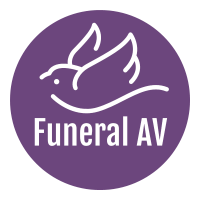First Steps
-
Understanding what steps to take after the passing of a loved one can be daunting. To assist during this challenging period, we've assembled a series of comprehensive guides to aid you in navigating these circumstances. Our collection covers various aspects, including immediate actions following the loss, such as engaging a Funeral Director, completing the necessary paperwork for registering the death, and managing account cancellations.
Having the guidance of a compassionate Funeral Director from the outset can provide invaluable support as you navigate the funeral arrangements. You can reach out to your local funeral home, and we're here to offer assistance, discuss available options, provide clarity on funeral expenses, and address any queries you may have.
-
You can reach out to a Funeral Director at any point, though a medical certificate of the cause of death is necessary for the funeral proceedings.
In the event of an expected death at home:
Contact the individual's doctor, who will visit to confirm the passing in person. If the passing occurs during nighttime or outside regular hours, dial 111 to request an on-call medical professional for assistance. Upon confirmation, the doctor will provide a medical certificate detailing the cause of death.
In the case of an unexpected death at home:
If an unexpected death happens at home, immediately dial 999 for assistance. Emergency services will coordinate with the coroner (or procurator fiscal in Scotland) to investigate the circumstances of the death. Following the investigation's conclusion, the coroner will issue a medical certificate indicating the cause of death.
For anticipated deaths in hospitals or hospices:
Hospital or hospice staff will arrange for a doctor to furnish a medical certificate specifying the cause of death. They will keep you informed and notify you when the certificate is ready for collection.
For unforeseen deaths in hospitals or hospices:
If a death occurs unexpectedly, an investigation into the cause of death is necessary. This may involve a post-mortem examination, with a coroner overseeing the investigation and issuing the medical certificate of cause of death. Hospital or hospice personnel will handle the necessary arrangements for this process.
-
If your loved one had a Funeral Plan arranged, they would have designated a Funeral Director or a funeral arranging service. You can reach out to the chosen Funeral Director to proceed with the funeral arrangements as per the plan.
Once the payment conditions have been fulfilled, the plan will cover the expenses for specific agreed-upon aspects of the funeral and provide guidance on honoring your loved one's wishes.
-
If your loved one had a Funeral Plan arranged, they would have designated a Funeral Director or a funeral arranging service. You can reach out to the chosen Funeral Director to proceed with the funeral arrangements as per the plan.
Once the payment conditions have been fulfilled, the plan will cover the expenses for specific agreed-upon aspects of the funeral and provide guidance on honoring your loved one's wishes.
-
You must register the death at a Registrar’s Office, typically within 5 days in England, Wales, and Northern Ireland, and within 8 days in Scotland.
If you're uncertain about the location or required documents, your Funeral Director can offer guidance.
-
If a Will exists, the designated executor will manage the estate; otherwise, an administrator will be appointed. Administering an estate can be a lengthy and complex process. For guidance on Wills and Probate inquiries, feel free to reach out to the National Bereavement Service for assistance.
